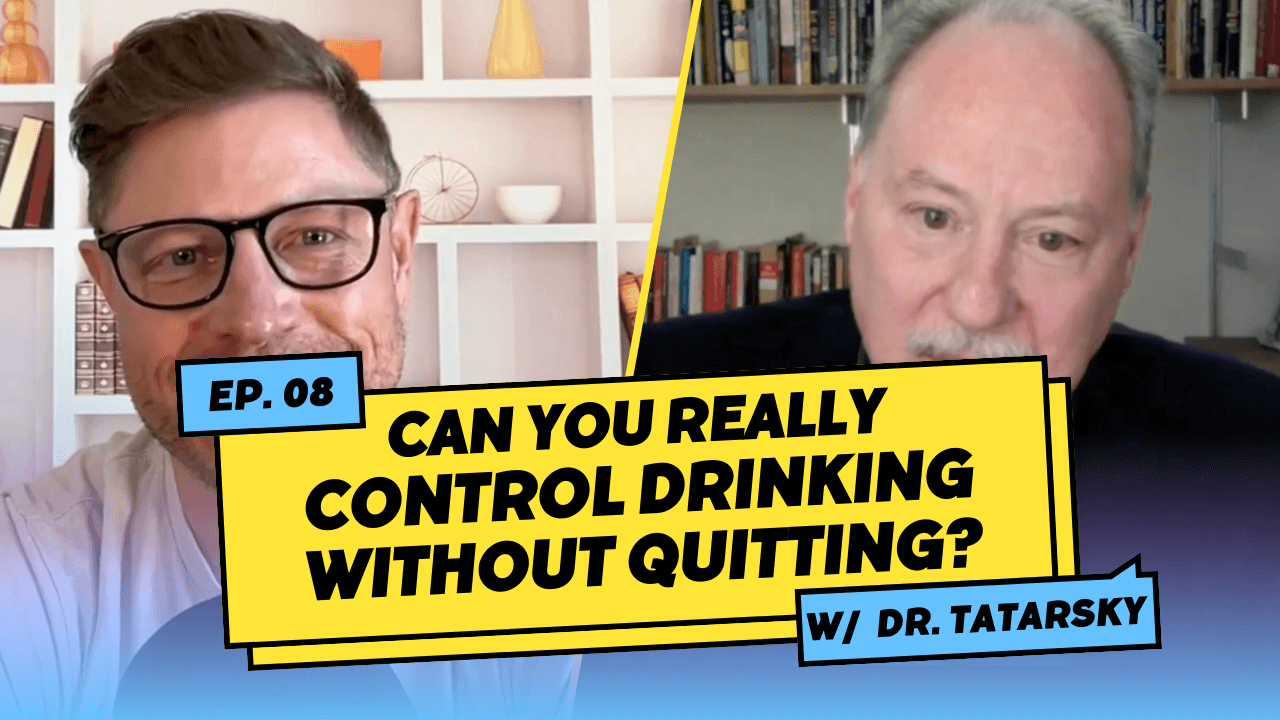Last Updated on May 30, 2023
The term “mommy juice” is often used as a humorous reference to moms who drink wine, but is actually quite problematic in the behavior that it promotes. We’re not going to get into it in this article, but needless to say we’re not fans of the term and are happy that it has become less used in pop culture over time.
Moms are drinking almost double what they did a decade ago.
And with never-ending dance classes and soccer matches or feedings and diaper changes, something to take the edge off so food tastes better and bickering sounds quieter makes sense.
Maybe it’s an extra generous pour as you prep dinner, another to soothe your aching back as you wash the dishes, and one more after they head to bed and you finally have a quiet moment to yourself.
Except, women are recommended to have just one drink a day or less.
But now, that number is closer to three drinks a day for many mothers, which may not sound so bad if you’re used to hearing, “one to two drinks a day is okay ”. Except — what that really means is one drink a day for women and two for men.
What is ‘Mommy Juice’ and Why is it Problematic?
“Mommy juice” is a term that has gained popularity in recent years as a slang for wine, typically consumed by mothers to cope with the stresses of parenting. While it may seem harmless at first, the term has drawn criticism from many who argue that it promotes unhealthy drinking habits and reinforces harmful gender stereotypes.
Furthermore, the use of the term can also alienate mothers who do not drink or who choose to parent without alcohol.
The exact origin of the term “mommy juice” is unclear, but it likely emerged from a cultural shift towards normalizing alcohol consumption as a way to cope with stress and anxiety. The term has been popularized through social media, where it is frequently used in humorous memes, blog posts, and online discussions about motherhood.
The rise of “mommy culture” has also contributed to the proliferation of the term, as alcohol consumption has become increasingly normalized as a way to unwind and relax after a long day of parenting.
While the term may have started as a lighthearted joke, it has since taken on more serious connotations, with many concerned about its impact on mothers and their relationship with alcohol.
In this blog post, we will discuss some tips to help mom’s with reducing their intake of alcohol for Mother’s day, without the pressure to stop entirely.
Why Are Women Told to Drink Less Than Men?
Women are much more affected by alcohol than men. It’s thanks to their smaller size, lower levels of the enzyme that breaks down alcohol, hormones, and body composition with less water and more fat (water dilutes alcohol, and fat retains it).
Women are often more affected by alcohol than men for a number of reasons. For one, a smaller body weight means you have less water in your blood and a higher ratio of alcohol. Women also have lower levels of the enzyme that breaks down alcohol. And finally, hormones come into the mix and change how alcohol affects your body and behavior.
Seven per week is considered mostly safe for women, so if you find yourself having three a day that’s 21 drinks a week — quite the difference. And unfortunately, women are more at risk of developing addictions and suffering their consequences, like depression and heart disease, more quickly.
How to Drink Mindfully This Mother’s Day
Mother’s Day usually means brunch and mimosas with gifts of roses and rosé.
Celebrations always seem to be tied to drinking, which can easily end with a bottle or three in the recycling bin. After all, it’s expected and even accepted to drink a bit more. But since regular drinking builds your tolerance, celebrating can mean you end up drinking much more than usual.
So if you’ve noticed you’re having more than what’s healthy lately and want to be more mindful about how you celebrate, here are some tips to help:
1) Prepare Mentally
Instead of tumbling into Mother’s Day, try taking a minute to think about how you want to spend the day. Do you want to have some quality time with your kids? What about seeing extended family? How would alcohol affect your day with those you love?
You can also think about any emotional triggers that might pop up. Maybe the day reminds you of the grief of losing your mom, or it’s just extra stress from planning and overly high expectations. Or you could be worried about ending up disappointed with false promises from your partner or kids of how you’ll celebrate the day. Whatever it is, think about how you’ll respond and put your mental health first, even if that means taking a long bathroom break to cry your eyes out — which is totally fine.
In the end, celebrations are full of expectations and it’s normal to end up disappointed (that oldie song, “It’s my birthday and I’ll cry if I want to” really has some truth to it!). So, let it be ok to feel whatever it is you’re feeling and take some of the pressure away from wanting a perfect day.
2) Make a Plan
Get strategic — what would make the day go easiest for you? How much would you like to drink? Put your say into the day and set some goals ahead of time to help you stay within your limits.
You can also think about other mindful drinking tips, like:
- Alternating every drink with water
- Having food in your stomach before drinking
- Ordering or buying non-alcoholic drinks like mocktails for the house
- Planning something special to reward yourself with for every small win
Finally, keep your triggers in mind. How can you plan for what might set you off? For example, can you avoid social media for the next few days so you’re not bombarded with envy of seemingly “perfect” families and get-togethers? Research shows it makes you feel lonelier, more jealous, and more depressed — so don’t underestimate the benefit of giving yourself a break from its falseness.
3) Ask for Support
Social support is one of the most important things that help us get and stay healthy, both physically and mentally. Let your friends and family know what you’re going through and ask for support. You can tell them you want to be alcohol-free that day, for example, and ask them not to gift wine but rather spend some time together and maybe have a mocktail instead.
If you don’t feel like anyone in your circle is particularly judgment-free and supportive, you can join support groups and apps like Sunnyside for a community of like-minded people ready to encourage you, including one-to-one coaching. You might also want to consider therapy if you’re struggling with anxiety or depression so you can get to the root issues while learning new coping tools.
4) Make Time for Self-Care
Everyone says you need to make time for self-care, but it can feel almost impossible when you’ve got kids. And it kind of is, unless you seriously make it non-negotiable and enlist family and friends or pay for babysitting. It might take a while to find someone reliable or get the funds to do so but, it’s recommended by everyone for a reason.
Even five minutes of daily meditation or a ten-minute walk in nature can help lower your cortisol levels. A short bedtime yoga practice to wind down before sleep or a saucy novel to let your running thoughts relax might do more for your mental health than you realize.
5) Practice Self-Compassion
We can’t underestimate just how important it is to let ourselves not be perfect. Mom guilt has been running rampant and passed down to each new generation for centuries — and it’s not going to go away unless you consistently remind yourself that you’re only human (and that kids are resilient!).
So start practicing forgiveness and remind your harsh inner critic that you’re doing your best, and that’s all you can do. Science proves it’s worth it — cultivating self-compassion is one of the best ways to learn how to regulate your emotions and improve your mental health.
If you can’t break out of self-criticism, try talking to yourself as you would talk to your child — would you tell them even half of the things you tell yourself?
Take the 3-min quizHow Sunnyside Can Help You Celebrate Mindfully
Instead of putting more pressure on yourself to have a perfect Mother’s Day, take a moment to go through these five tips and think about ways to relieve some stress. Maybe that means staying in, ordering food, and going to bed early. Or it could be gifting yourself with hiring someone to clean your house regularly. It might also just mean promising yourself to work on that harsh-inner critic and cultivate more self-compassion.
And since progress isn’t a linear process, you’re going to need support to go with the ups and downs to come. With Sunnyside, you’ll become part of a community full of moms looking to drink more mindfully and learn healthy ways to cope with daily demands. You’ll also get a safe space to track your habits, set personalized goals, and get regular professional advice. So take the 3-minute quiz and see how this science-backed mindful approach can work for you.
In the end, Mother’s Day doesn’t have to come with expectations or rosé — but if it does, that’s okay, too. Your goals are your own, and whatever happens, you can keep working on building healthier habits one day at a time.



